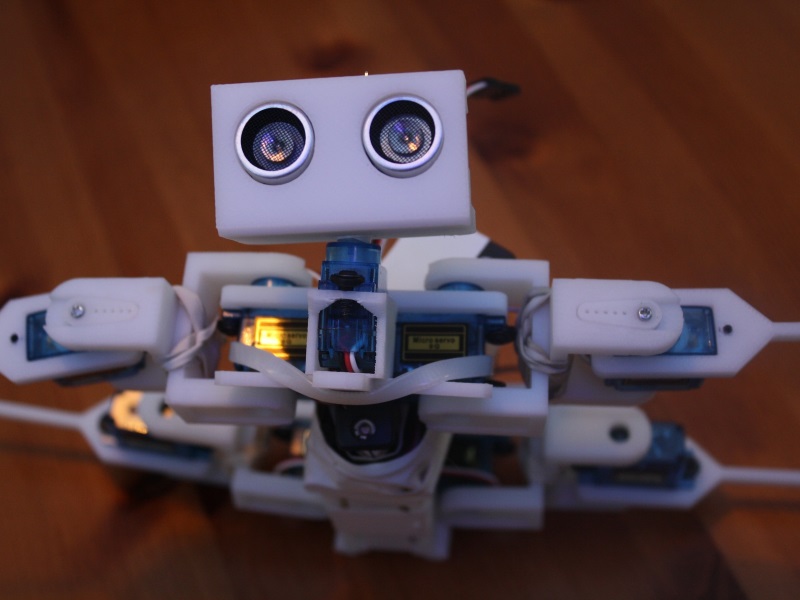- Home
- Science
- Science Features
- Use of Everyday Artificial Intelligence Seen as Way Forward
Use of Everyday Artificial Intelligence Seen as Way Forward

Many electronics manufacturers see this as an opportunity, but some point out that overseas manufacturers, particularly in the West, are leading the field. Therefore, Japanese electronics manufacturers will have to play catch-up.
At a conference held in Tokyo on Nov. 18, NTT Comware Corp. demonstrated a piece of AI voice-control technology in a cell phone that automatically coordinates schedules based on what the user says. Next summer, NTT Communications Corp. will release technology that understands spoken language, with plans to sell it for use at places including call centres.
Both the West and Japan have heavily invested in AI since the 1950s, but the technology long struggled to move beyond its status as the "technology of the future" due to computational limitations.
Today, the troves of information created through widespread use of the Internet as well as massive improvements in computational capability have allowed for practical applications of AI in various areas.
Ernst & Young Institute Co. has estimated that the Japanese market for AI business will grow from JPY 3.7 trillion (about $30.1 billion or roughly Rs. 2,00,332 crores) in 2015 to JPY 23 trillion or more in 2020.
Businesses hope this technology will allow them to cut costs and determine optimal sales strategies using massive amounts of customer data. For consumers, it is believed the technology will be used in household robots that can express emotions and self-driving cars with high safety standards.
This is a huge opportunity for electronics manufacturers that have been conducting research into AI.
NEC Corp. has unveiled technology that can identify an individual's face in multiple crowd settings recorded by security cameras, Fujitsu Ltd. has developed software that identifies the emotions on people's faces and Hitachi Ltd. launched a service last month that utilizes businesses' big data to optimize operations.
However, many analysts point out that the Japanese AI industry is not very competitive on a global scale. Most of the research papers published on AI between 2008 and 2013 came from Western countries and China, with only 2 percent coming from Japan. The investments Japanese corporations are making in AI are also much smaller than the ones being made by tech companies in the United States.
In response to this critical situation, the Japanese government allocated JPY 1 billion for AI-related areas in fiscal 2015, strengthening the joint effort between the public and private sectors. In May, the National Institute of Advanced Industrial Science and Technology established the Artificial Intelligence Research Center.
Artificial intelligence has the potential to bring about the next industrial revolution. Analysts have pointed out that for Japan to survive this race it must not only pursue technological advancement but also develop services that answer the needs of the market.
© 2015 The Japan News
Catch the latest from the Consumer Electronics Show on Gadgets 360, at our CES 2026 hub.
Related Stories
- Samsung Galaxy Unpacked 2025
- ChatGPT
- Redmi Note 14 Pro+
- iPhone 16
- Apple Vision Pro
- Oneplus 12
- OnePlus Nord CE 3 Lite 5G
- iPhone 13
- Xiaomi 14 Pro
- Oppo Find N3
- Tecno Spark Go (2023)
- Realme V30
- Best Phones Under 25000
- Samsung Galaxy S24 Series
- Cryptocurrency
- iQoo 12
- Samsung Galaxy S24 Ultra
- Giottus
- Samsung Galaxy Z Flip 5
- Apple 'Scary Fast'
- Housefull 5
- GoPro Hero 12 Black Review
- Invincible Season 2
- JioGlass
- HD Ready TV
- Laptop Under 50000
- Smartwatch Under 10000
- Latest Mobile Phones
- Compare Phones
- Honor Magic 8 RSR Porsche Design
- Honor Magic 8 Pro Air
- Infinix Note Edge
- Lava Blaze Duo 3
- Tecno Spark Go 3
- iQOO Z11 Turbo
- OPPO A6c
- Samsung Galaxy A07 5G
- Lenovo Yoga Slim 7x (2025)
- Lenovo Yoga Slim 7a
- Lenovo Idea Tab Plus
- Realme Pad 3
- Moto Watch
- Garmin Quatix 8 Pro
- Haier H5E Series
- Acerpure Nitro Z Series 100-inch QLED TV
- Asus ROG Ally
- Nintendo Switch Lite
- Haier 1.6 Ton 5 Star Inverter Split AC (HSU19G-MZAID5BN-INV)
- Haier 1.6 Ton 5 Star Inverter Split AC (HSU19G-MZAIM5BN-INV)







![[Sponsored] Haier C90 OLED TV | Dolby Vision IQ, 144Hz OLED and Google TV in Action](https://www.gadgets360.com/static/mobile/images/spacer.png)









